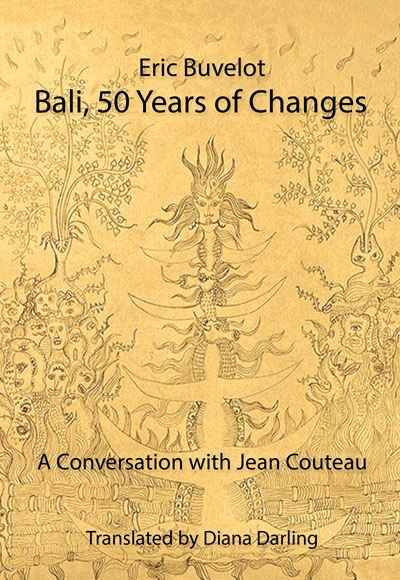A new trilingual book brings together some of the most important and exciting Mapuche poets from Chile.
Poetry of the Earth: Mapuche Trilingual Anthology is a remarkable collection of poetry in Mapudugun, Spanish and English that explores Mapuche culture and literature and negotiates its space in the national Chilean and global context.
The Mapuche are the Indigenous people of Chile, and today the traditional Mapuche language, Mapudugun (the language of the Earth), and culture have survived more than 500 years of colonisation.
While Mapuche poetry has been at the forefront of a cultural renaissance in Chilean literature in recent decades, it has not been widely translated into English.
Poetry of the Earth presents a significant offering of Mapuche poetry, where the powers of the landscape and the word are deeply rooted in mythical beings and current political conflicts.
Works from seven Mapuche poets have been compiled by editor Jaime Luis Huenún. The poetry was orginially written in Spanish and has been translated into Mapudungun by Victor Cifuentes Palacios. Steve Brock, Juan Garrido Salgado and Sergio Holas have translated the poetry from Spanish into English. Publishing each poem in all three languages is a testament to the complex identity of the Mapuche society and history.
Dealing with colonial themes, Poetry of the Earth will resonate with Indigenous peoples and their struggles around the world. The poets also present questions about far-reaching, human themes – injustice, life, death, ecology, love, struggle and reconciliation – and reflect the challenges faced by colonised Indigenous peoples.
The poetry asserts the pertinence of the knowledge and ways of life of Mapuche elders, and their place in the conversation with a nature that is alive and speaks through the stories they tell.
Fitting within the contemporary Latin American literature scene, this important anthology combines languages, cultures, and literary forms into a remarkable ensemble, promising to give Mapuche poetry greater visibility in the English- and Spanish-speaking world.























IP (Interactive Publications Pty Ltd)
Mapuche poetry has flourished in recent decades and is now one of the most compelling neighbourhoods of contemporary Latin American literature. Incredibly, however, much of it remains untranslated into English. Not only does this anthology correct the situation, it goes far beyond the scale of anything published before. Some of the most important and exciting Mapuche poets are gathered here.
Providing versions of each poem in Mapudungun, Spanish and English, Poetry of the Earth demonstrates how Mapuche poetry is so much more than just a collection of poems, or an act of writing. Rather, it is an expression of a long, rich and dynamic history, which at different times and places has made use of many kinds of musical, literary and linguistic forms.
As the poems are often operatic in their scope and register, the anthology as a whole is also a sophisticated ensemble of languages, cultures, critics and poets. Translations by Mapuche and Settler Chileans meet the translations of Chileans and Australians on the other side of the Pacific Ocean. Then, Aboriginal, Mapuche and Settler scholars provide extremely useful introductory essays.
Poetry of the Earth is a remarkable example of Australian-Chilean resonance, and of the shared history of European colonisation of indigenous peoples around the world. This is not just an anthology of poetry from a distant land and language; it’s an illustration of a vital, trans-Pacific force.
– Stuart Cooke, Griffith University
IP (Interactive Publications Pty Ltd)
If you long for a textual world to lose yourself in, then this anthology will enable you to slip-off the garments of your material being, and share the Mapuche visions naked and divine, of lands and tongues, unwilling to surrender or recognise that the deplorable history of colonialism has been absolute.
Poetry of the Earth is part of an awakening of pride in Indigenous culture, for it speaks from a language that, although fragile in ‘Western’ terms, is embedded in the landscape, air, and water of Mapuche dreamscapes and will always resonate with power, resilience and wonderment.
– Samuel Wagan Watson, author, Love Poems and Death Threats
IP (Interactive Publications Pty Ltd)
Book reviews tend to operate according to some kind of comparative drive: which are the writers whose work this resembles; is this work better or worse than those? Where can it be located in a historical system of literary relationships? Leaning on Harold Bloom’s theories of critical paternity testing and an inverted form of child support, this mode of review is supposed to gives us an idea of what the book might be like, whether we should bother reading it, perhaps even whether it should have been published in the first place.
In some ways, Poetry of the Earth: Mapuche Trilingual Anthology challenges us to abstain from these tropes. Poetry of the Earth is an extraordinary book, and before it and the work it contains can be compared to anything, it is necessary to consider just how remarkable it is as a publishing project. Works translated into English comprise approximately two to three percent of total publications each year (the figure sinks even lower if restricted to works of literature). Bilingual editions, though not uncommon for collections of poetry, are by no means standard practice. The reasons typically given for this are understandable: including the original text in a publication either doubles the page count (and increases printing costs) or halves the amount of work that can be included. Additionally, books that do get translated tend to be skewed towards Europe (French, German, Spanish, Italian, Russian). So to be able to pick up a book focusing exclusively on contemporary Mapuche poets, with all the poems published not just in Spanish and English, but also in Mapudungun, is truly radical. That it comes from an Australian press, explicitly framed within the context of inter-indigenous poetics and solidarity only makes it more unique. As such, the book almost seems to dare a reviewer to compare it to other books and not come out looking like an idiot, or worse.
– Joel Scott, Cordite (read the full review here)